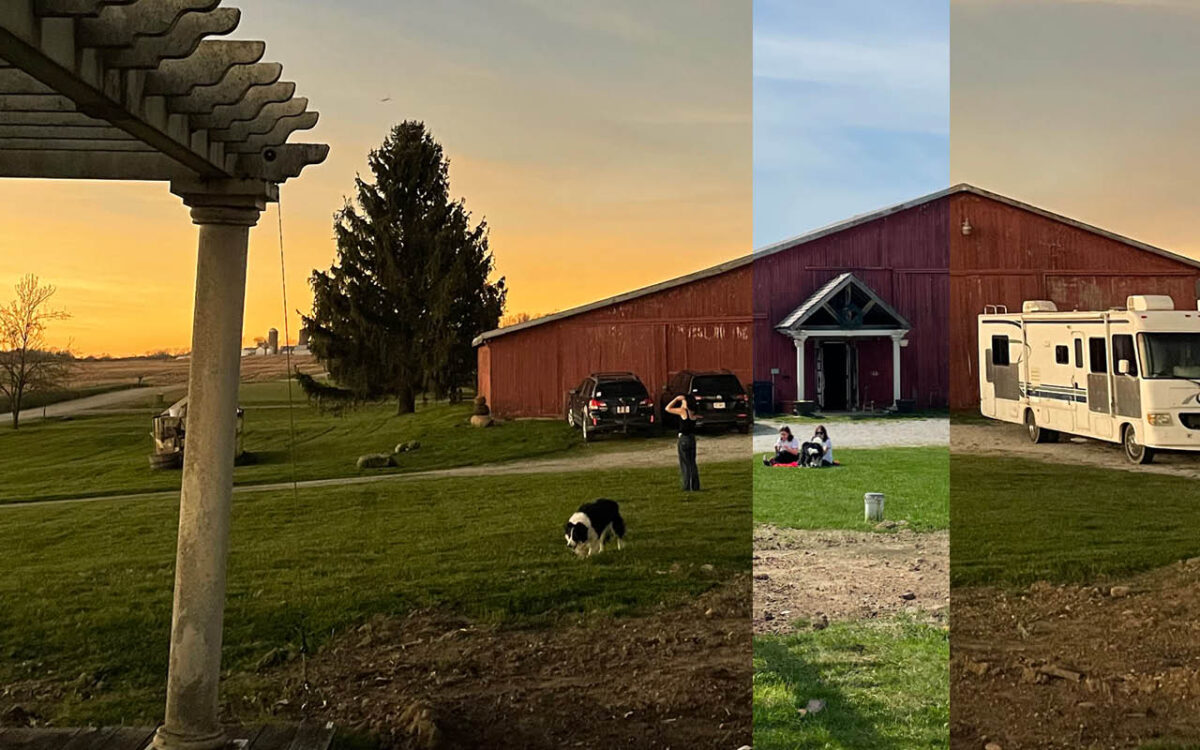Mark Twain famously said “the difference between the almost right word and the right word is really a large matter — ’tis the difference between the lightning-bug and the lightning.”
I’d say the same about the distinction between a 99% solar eclipse and totality, where the moon passes between the sun and the earth, completely obscuring the sun. Licking County just barely missed out on totality, with some areas literally less than 1% away from it.
By now you’ve likely heard from others if you didn’t go in search of it yourself: 99% coverage — even 99.91% coverage, like parts of Johnstown saw — is not the same experience as a total eclipse.
And it is not.
When the disc of the moon covers the sun, there’s a truly cosmic sense of scale that both rushes upon the viewer on the ground, and draws you up into the near infinite contrast between Earth and the intervening heavenly bodies. Add in the coruscating lights around the circumference, solar prominences momentarily visible in bright glowing reds and shimmering greens, and you are in the presence of something simply not of this Earth.
There’s a comparison of sorts when you happen to see a moonrise on a clear evening, full and seemingly vast against the distant horizon, usually an unusual orange or even blood red when the thickest part of the atmosphere filters the usual silvery moonshine. The rising moon can capture your attention in ways a full one directly overhead does not. A solar eclipse totality is similar, and yet…
My wife and I were in central Indiana for the event, at a house slowly being emptied after a death in the family last December, part of a neighborhood we’ve come to know but are still strangers in. We sat on camp chairs on the back patio as totality came into view, no longer needing eclipse glasses. The traffic on a busy road behind us stopped almost entirely some minutes before. There was no one at all within sight where we sat.
Yet as the totality wrinkled its way from the last sliver of sun to the “beads” of sunlight through lunar mountains and valleys, with darkness suddenly gripping the sky, chilling the air, and opening up stars and planets to view overhead, there were cheers from all around us from unseen observers.
We heard shouts and laughter and applause, dozens of voices from points across the road and to either side. We shared the experience overhead with many people invisible to us but still within earshot, a less-than-cosmic distance around our location.
In an earlier era, we might have gathered at the well or spring, buckets in hand, marveling at what we’d seen; maybe we’d come to the market square, the church towering across us from one side, and share our impressions and understandings.
Instead, we had a television just inside the sliding door of the patio to keep us apprised of events at the Indianapolis Motor Speedway, and later about traffic reports crowding the interstates leaving the area.
In other words, our moment of common experience was brief, and dissipated into the more usual linkages of media analysis. We get told, no matter how politely, what we just saw or felt or understood. Maybe that’s more efficient, I don’t know.
What I heard in those cheers over fences and across right-of-ways, though, was a moment of communion, of connection. It felt good. It felt right. It’s something we needed, and need more of. Even if it’s just more sunsets shared in common.
Or as John D. MacDonald said in 1966: “If there was one sunset every twenty years, how would people react to them? If there were ten seashells in all the world, what would they be worth? If people could make love just once a year, how carefully would they pick their mates?”
A total eclipse is almost exactly that kind of experience. It makes you think about time passing, and people slipping away, opportunities you’ve missed, and conversations you never had and may never have again. The next one is a long, long time from now, but my next chance to talk to a neighbor passing by could come any time. But it may be just as precious.
Jeff Gill is a pastor, a mediator and a freelance writer in Granville, Ohio.

